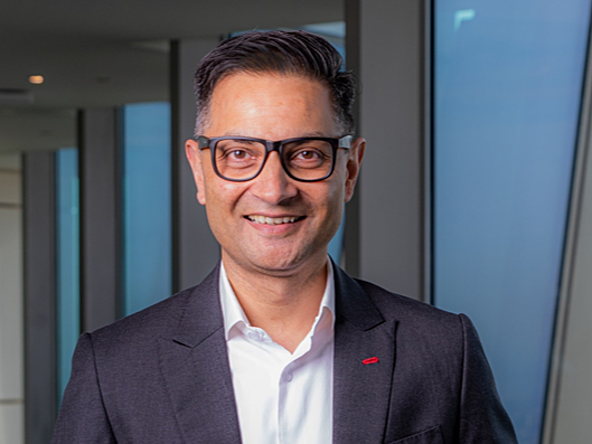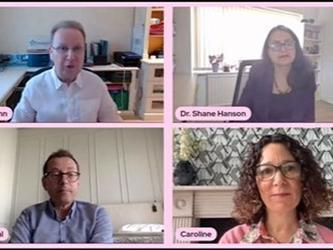Why we must bring big data into the insights mix

Arshad (pictured) was taking part in a keynote interview conducted by outgoing MRS president Jan Gooding at the Impact conference 2022. Asked what he would encourage market research to focus on in the realms of innovation, he replied that for him it’s all about the pace of the insights that one gets when using data science.
Having worked with data scientists since 2002, Arshad said one of his priorities as MRS president will be to discover how the sector can push on into the issue of big data at scale to drive commercial effectiveness.
“It revolves around test and learn, [in the context of] the rapid iteration of minimal viable products and getting stuff to market quickly. That’s so vital because the days when we could afford to take 12 or 18 months for a product cycle are long gone. We as a community need to adapt to that and be providing almost ongoing consistent insights, no longer that monolithic type of approach.”
Arshad noted that one way to deliver rich insights is by using net promoter score (NPS) techniques. He works with a provider at Santander which has a “very rich capability in this respect; every morning I get a snapshot, with updates from the day before of what customers liked or didn't like – that kind of immediacy is incredibly powerful.”
He continued: “As I get out into the industry, I'd love to see how these ideas have promulgated. We have to ask ourselves are we being agile enough because the pace of business has accelerated immensely and continues to do so and our discipline needs to be at the vanguard of that change”.
Arshad also touched on the value of insight when it comes to a company interacting better with its customers. He recalled how, when working at Vodafone, a qualitative and quantitative insight study enabled it to test a new retail environment that resulted in a complete refit of every store in the country.
“It was something that was powerful and galvanising for that retail community and led to a more detailed piece of work, collaborating with retail design specialists to look at specific customer moments within the retail experience. We built a series of 12 moments of truth based around the customer journey and it led to a redesign of all 17,000 stores – and those key elements are still present in store in the UK today.”
Gooding commented that the moral of the story might be “to spend longer upfront and then hit the ground running once you're sure that you have the right insights needed to progress.” She then touched on an article from Marketing Week in which Arshad had been quoted as saying there was no longer a role for focus groups and asked him to elaborate on this.
“It’s all too easy to default to methodologies that have been used over a long time”, commented Arshad. “We owe it to ourselves to take advantage of the full panoply of newer tools and methodologies now available. My concern with focus groups is that even with very good moderators, it’s all too easy for people to be led astray by more outspoken participants.”
He continued: “There is a role for it, but I would definitely like to see it run alongside more quantitative, purer methods of research such as ethnographies and data mining. We are all guilty of post-rationalising, for example why we buy a particular brand of toothpaste. You could talk about it at length, but the reality is you probably buy it because it’s the one your parents bought, it’s instinct.”
Arshad added that one of the things that appealed to him about taking over the presidency of MRS is how much more the sector has become data-driven and “how we begin to apply the capabilities and technologies that have opened up consumer research.”
Asked by Gooding what he felt some of the challenges were that the sector currently faces, he said: “With client budgets under stress, we need to be continually selling the value of what it is that we do.
“It needs to be reinforced all the time because what we are doing is helping businesses get sharper and more efficient to deliver products and services better. Smart organisations don’t talk about marketing as a cost; they talk about it as an investment.”

We hope you enjoyed this article.
Research Live is published by MRS.
The Market Research Society (MRS) exists to promote and protect the research sector, showcasing how research delivers impact for businesses and government.
Members of MRS enjoy many benefits including tailoured policy guidance, discounts on training and conferences, and access to member-only content.
For example, there's an archive of winning case studies from over a decade of MRS Awards.
Find out more about the benefits of joining MRS here.














0 Comments